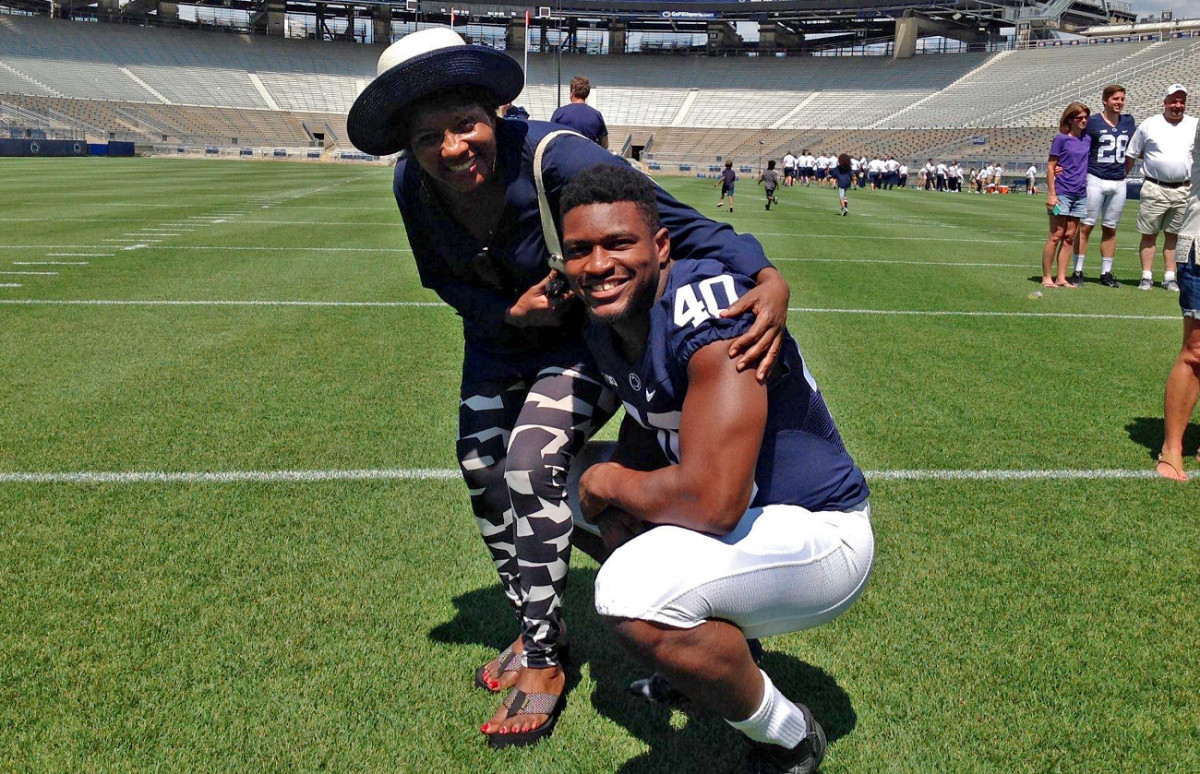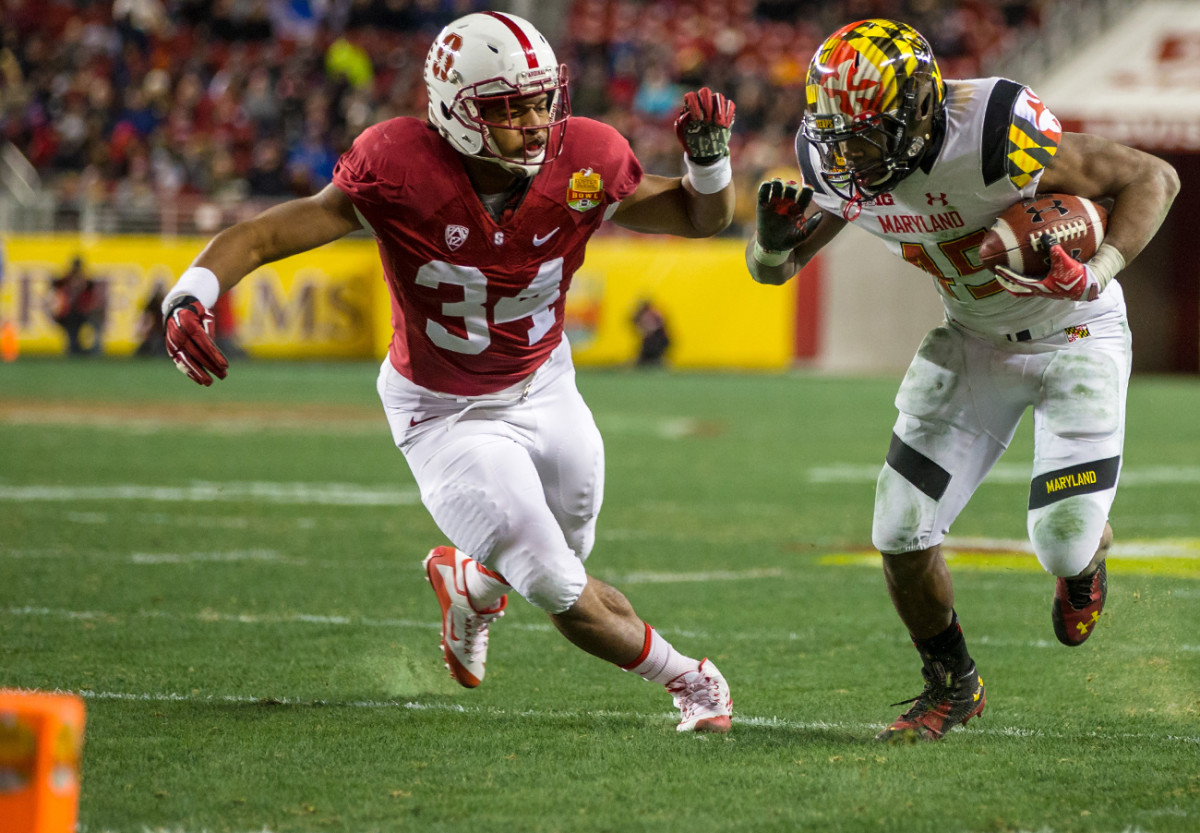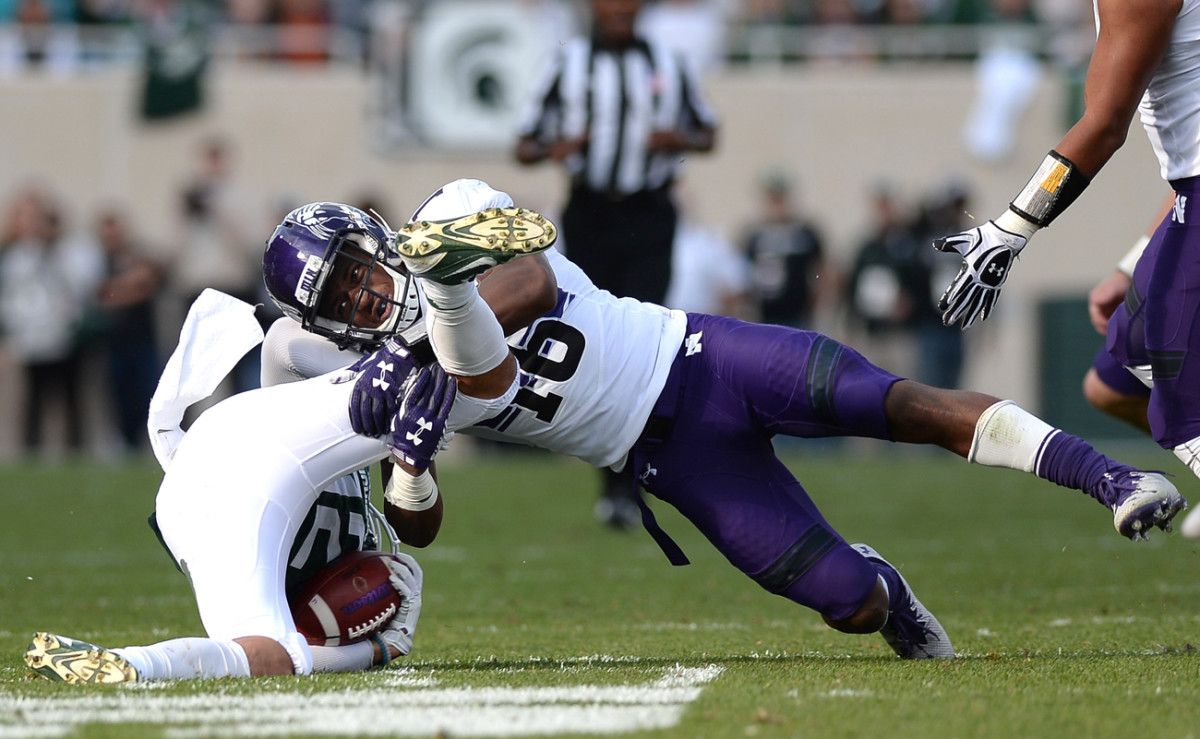The 2018 Draft Is an African Immigrant Story

The ekwang is so good, Natalie Cabinda says, that if you taste it in her native Cameroon you won’t want to eat anything else again. Ever.
She doesn’t make it as often here in her spacious home in western New Jersey, although the local ShopRite has surprised her at times with a stock of cocoyam, an essential ingredient to the rich stew of boiled beef, fish and greens. It takes time—hours for the onions, peppers and spices to marry with the broth and tenderize the proteins—and Natalie Cabinda has never had much time for anything that didn’t involve making a better life for someone else.
When she was a child, her family managed to smuggle her out of the village where she was born, Batibo, to live with her older sister near Cameroon’s capital, Yaoundé. She mastered two languages in college. The second was for the family that lifted her to a better place. There was an unspoken pressure and pride in escaping a social and economic system that encouraged women to marry young in exchange for a dowry.
“I never wanted to stop going to school,” Natalie says. “I always felt like I was learning for them. I am the first girl who ever succeeded in graduating with a degree from the University of Yaoundé. Nobody ever succeeded in that.”
When she was 28 and a mother of two, she and her former husband fled the country amid a brush with the country’s shadowy and ruthless political empire. A relative of her husband’s was shot and killed for seemingly no reason by someone they believed was a government operative, bringing the dark side of her beloved and vibrant Cameroon too close to home. They moved to Hawthorne, Calif., then Fullerton. Her husband, who’d been a doctor in Africa, was relegated to non-medical moonlighting duties at emergency clinics. Natalie had been a teacher in Cameroon, a country so enamored with its educators that if students aren’t instructed to take their seats, they would remain standing at attention throughout the class. Now, she was a substitute teacher getting harassed for having an accent.

“They didn’t listen to me,” she says of her American students. “They were like, ‘Where are you from? Where’s Cameroon? They didn’t know Africa was a continent.”
In the 25 years since she arrived in America, Natalie published two books, became a high school teacher, college professor and U.S. citizen. This week her youngest, Penn State captain and linebacker Jason Cabinda, will be selected in the 2018 NFL draft.
Jason is one of roughly a dozen NFL prospects in this year’s class with first-generation African roots—a small snapshot of a league and country that are becoming at the same time more diverse and more insular. At a moment in history when the immigrant experience in America is loudly debated but rarely understood, they and their parents represent the distillation of the core values many Americans claim in themselves. Hard work and sacrifice. Respect and compassion.
From Small-Town Idaho to the NFL Draft, Leighton Vander Esch Ready to Take the League by Storm
Jason remembers his mom, worn down from two teaching jobs, still ensuring daily to remove his X Box video game console from the entertainment center and lock it in her trunk during school every day, to guarantee his homework was done; still making time for family prayer; still keeping touch with his coaches and academic advisors on a daily basis. All the while, she was painfully homesick for her beautiful village, sending money back to a family she missed dearly but had seen once in almost two decades.
Never for one moment did she relax. Neither can he.
“I feel like I have more to lose,” Jason, one of the leading tacklers in Penn State history, said. “There’s so much more invested in me.”
The most recent Census recent data show that the African population in the U.S. has doubled each decade since the 1970s. More than two million African immigrants live in the U.S. and, as the Pew Research Center noted last year, immigrants from Africa represented the “fastest growth rate” of any U.S. immigrant population between 2000 and 2013.
Despite certain damaging political commentary, the recent wave has gifted the country with tens of thousands of highly trained medical professionals, business people, engineers, architects, writers, accountants, artists and lawyers.
“We all share the same cultural values: Democracy, education, the rule of law,” Herman Cohen, a former U.S. Secretary of State for African Affairs under George H.W. Bush, told me. Cohen, who recently issued a strong rebuke of the political sentiment surrounding African immigrants in a column for The Hill, remains plugged in on America’s relationships and responsibilities to the continent.
He added: “People don’t know that those coming from Africa are bringing a lot of good things with them.”
The NFL has seen a similar boon of talent and character. In 2017, the Undefeated counted 68 NFL players from 18 African countries who were either native-born or first generation in the U.S. Of that 68, 12 were first-round picks, nine were Pro Bowlers, four have won Super Bowls and six were named to an All-Rookie team.
So, Are Any of These Quarterbacks Going to Be Good?
Those players have successfully shined the light on Africa, introducing fans, teammates and media to the food, music, cultural traditions and geographical highlights of a continent that is often blanketed by the American media as rife with corruption and poverty. And when it comes to Africa’s struggles, there are numerous recovery efforts that have an NFL player attached. Ezekiel Ansah works with Ghanaian youth to promote physical education; Tamba Hali was nominated for a Walter Payton Man of the Year award for assisting in the construction of an Ebola treatment unit in Liberia. In the U.S., Brian Orakpo led efforts to help Houston rebuild after Hurricane Harvey as a first-generation citizen whose parents came from Nigeria.
That global consciousness has informed the next generation of prospects. Peter Kalambayi, a linebacker out of Stanford projected to go early in the 2018 draft, wants to be a correspondent in his down time. His father is Congolese, though he was raised by his mother, Liselle, who is from Trinidad and Tobago.
“I like listening to peoples’ stories, and I was a communications major,” he says. “I took a journalism class, and if I went in that direction that’s where I want to go. I want to gather stories.”

Kalambayi felt an undeniable warmth in bouncing between cultures. One day running into a distant cousin who recognized him as Congolese because of his last name, resulting in a traditional home cooked meal later that night. The next day talking about the President of the United States with his relatives in Trinidad. Maybe, by example, he can help show the rest of the country how to fearlessly and respectfully transition from one set of ideas to another; from one continent to the next.
“It’s just good to have a worldview from three different perspectives,” Kalambayi told me. “I hear what my Congolese family thinks about politics, religion and everything. Same with my Trinidadian family. And obviously I’m engulfed in American culture. I pretty much—I’m very in tune with three different worldviews.
“I think that’s good in a society that’s kind of torn these days in a partisan way. I think it’s good to be able to look at things from different perspectives. We don’t do much of that anymore.”

Leo Igwebuike got off the plane from Nigeria, and his mother handed him a coat.
He remembers wearing his sandals outside the airport in northern Ohio. It was late fall, and the cold stung his feet for the first time. Everything was unfamiliar. He was seven years old, only vaguely aware that his family left home after the end of the Biafran War in the early 1970s to start a new life. His father, a university professor, got a year’s head start to establish a home.
His journey underscores the bravery and fortitude of American-bound parents and first-generation children. In a traditional Catholic Nigerian household, parents were true matriarchs and patriarchs. There was no explanation of events. No sitcom moment where the parents level with their children and discuss their mutual struggles.
This was an opportunity. Success was expected. No one, young or old, fell back on excuses.
Now, decades later, Leo’s son Godwin is preparing for the NFL as one of the draft’s top safeties, out of Northwestern. That seemed like a lifetime removed from the first steps Leo took on a football field as a young immigrant trying to pinball his way through American culture.
By then, he’d upgraded to Converse high-tops, unaware that the kids shoving him around on the icy turf all wore cleats that could dig into the dirt. He played tight end and was deemed most improved player at the end of his freshman year. He told his parents about the accolades, asked football shoes and was told to get a job at the library and focus on his studies. He earned all A’s.

On the football field, he learned to deflect the bullying, which was prevalent, by using a move he brought from Nigeria—a sort of sumo sweep that he initiated by grabbing the offender’s legs and pummeling them to the ground.
“If I was being harassed—and this was weeks of harassment, and I’m a quiet guy and I don’t say much, people teasing me about my accent, where I’m from, my name—but once I slammed them, Boom! That was it, they didn’t mess with me anymore. You get that strange respect.”
Just before he began college, a second-cousin of Leo’s started dominating the NFL, leading the league in rushing in 1989 and reaching a second Pro Bowl in 1991. They called Christian Okoye the Nigerian Nightmare, and his rise to fame was a seminal moment during Leo’s formative years. Okoye’s punishing style blended with a proud cultural identity—Leo had always been firm in his roots among the Igbo tribe, and he reveled in the warrior spirit. Everything about who they were and why they were here was starting to come together.
“For me, it was defining,” he says of Okoye’s NFL prominence. “Not to be arrogant, but we’re a very powerful people. I recognized my physical abilities when I was younger, but for him to transition to football, it was incredible. He broke a lot of the stereotypes. People didn’t believe it.”
Monday Morning Mock Draft: Darts, Deals & Wild Guesses
He is happy now. At peace, but always looking for lessons in his family’s past. He’s helped create a world where Godwin can wear that warrior mentality, but can also project his humility. It rounds him out in a way that serves as the payoff for a lineage of sacrifices.
“Even though my kids weren’t born there, I always remind them—you are Nigerian,” Leo says. “You should always be proud, and always be focused on spirituality first, family second and education third. That’s been their walk. That’s Godwin’s walk. And I demonstrated that myself by how I pursued my life.”
Question or comment? Email us at talkback@themmqb.com.
